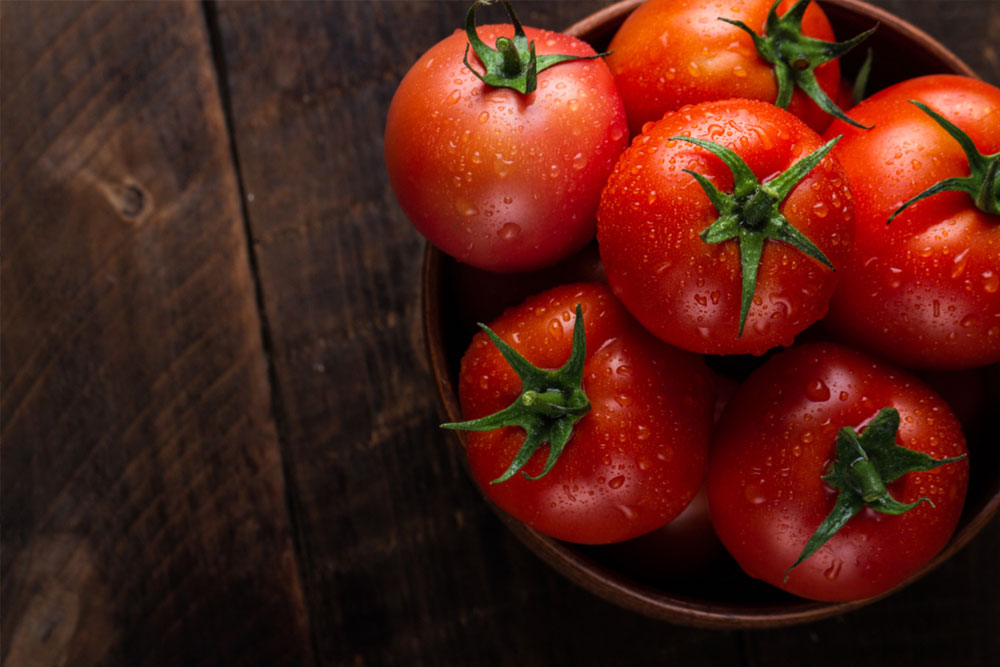When we talk about a balanced diet, we are often advised to “eat the rainbow”. But what does the phrase mean? Simply, it refers to a colour guide to fruits and vegetables to understand the unique health benefits of each colour group. While the greens help with removing potentially carcinogenic compounds from the body, and lowering blood pressure, the reds act as an antioxidant and improve heart health. They are rich in nutrients like vitamins A, C, and folate. Here are some red fruits and vegetables that should be a part of your diet:
1. Apples (Seb)

“An apple a day, keeps the doctor away”, an age-old adage, which continues to be part of households all over the world. is not going away anytime soon. And with good reason. They are low in calories, and are a rich source of carbohydrates, fibre, vitamins C and K, and potassium. The health benefits of apples are:
• They are linked to a lower risk of heart disease as they contain soluble fibre, which helps lower blood cholesterol levels. The peel contains polyphenols, such as flavonoid epicatechin which have antioxidants and lower blood pressure by reducing the level of bad cholesterol in the body.
• They contain pectin, which is a type of fibre that acts as a prebiotic. It feeds the good bacteria present in your gut. This helps improve digestion.
• Due to a high content of fibre and water present in apples, they are very filling and keep hunger at bay for a longer duration, thus eliminating the need for random snacking.
Storage Tip: To retain crispness, it’s best to store apples in the refrigerator. Place them in the vegetable drawer in a plastic bag, with holes in it (using either a fork or toothpick), along with a damp paper towel. It is advisable to not store other vegetables in the same drawer as apples give off ethylene gas, which can speed up the decaying process of whichever produce is kept nearby.
2. Pomegranate (Anaar)

Pomegranates are considered as one of the healthiest fruits around , as they contain a range of plant compounds, which is unrivalled by other foods. It contains fibre, protein, vitamins C and K, folate, and potassium. Some health benefits are:
• They contain a powerful plant compound known as Punicalagins, which helps reduce inflammation in the body due to its antioxidant properties.
• Regular intake of pomegranate juice aids in lowering blood pressure levels, due to the presence of polyphenols.
• Pomegranates also contain another powerful plant compound known as punicic acid, which is a type of fatty acid that lowers the chances of heart disease. It protects your cholesterol profile and prevents the bad cholesterol from oxidative damage.
Storage Tip: They should be stored in a cool, dry but well-ventilated space. The whole fruit can be refrigerated for almost two months. Seeds or juice can be kept in the refrigerator for about five days. You can also freeze the seed for later use by spreading the arils on a baking sheet lined with wax paper. Place them in the freezer for no more than two hours and then transfer to a moisture, vapour-proof container. Keep this container in the freezer. The juice can be canned, however freezing is recommended. Use it within one year.
3. Strawberry

Strawberries are replete with plant compounds that help with heart health and blood sugar control. It contains vitamin C, manganese, folate (vitamin B9), potassium, protein, carbohydrates, fibre, and fat.
• Fresh strawberries contain water, so their total carb content is low, and they also have a low glycaemic index. This means that consuming them won’t lead to high spikes in blood sugar levels and are safe for consumption by diabetics.
• Regular intake of strawberries can improve blood antioxidant status, decrease oxidative stress, improve blood lipid profile, and reduce the harmful oxidation of bad cholesterol. This is due to the antioxidants present in it.
• They slow down glucose digestion and reduce spikes in glucose and insulin, thus allowing your body to tap into its energy reserves to break down carbs and regulate the blood sugar levels. Therefore, strawberries help reduce the risk of type-2 diabetes and slow metabolism.
Storage Tip: Remove the strawberries from their original container, and store them whole and unwashed in a partially-closed container lined with paper towels to absorb any excess moisture. They should last up to five to seven days. If you wish to keep them for longer, it is advisable to remove the stem, slice or halve them, place them on a baking sheet and freeze them. Once frozen, store them in an airtight container.
4. Beets (Chuqandar)

Beetroot, also known as beets, is a popular root vegetable which finds itself being used in many cuisines around the world. They boast of an impressive nutritional profile as they contain protein, fat, fibre, vitamins B6 and C, folate, magnesium, potassium, phosphorous, manganese, and iron. Health benefits of beets include:
• They contain a high level of nitrates which help lower blood pressure levels, which further lead to reduced risk of heart attacks, stroke, and heart failure.
• They are a good source of fibre, which improves digestive health.
• Have high water and low calorie content, which keeps you satiated over a longer duration.
Storage Tip: Beet leaves last only a couple of days, so it’s best to separate them from the roots to keep them from perishing. Once you have chopped the leaves, put the unwashed beets in a ziplock bag and seal it properly before putting them in the vegetable drawer in the refrigerator. This should last for about two to three weeks.
5. Tomatoes (Tamatar)

Although a fruit, the tomato is considered and consumed as a vegetable. The water content of tomatoes is around 95Per cent. The other 5 per cent consists mainly of carbohydrates and fibre. The other nutrients present in tomatoes are protein, carbs, vitamins C, B9, and K1, and fat. It also contains the antioxidant lycopene, which has been linked to many health benefits, including reduced risk of heart disease and cancer.
• They contain vitamin K1, also known as phylloquinone, which is important for blood clotting and bone health.
• One of the most important B vitamins, folate, is present in tomatoes, which is imperative in tissue growth and cell function. This why it is recommended for pregnant women.
• The presence of chlorogenic acid, a powerful antioxidant compound, helps lower blood pressure in people with elevated levels.
Storage Tip: Ripe tomatoes should be stored at room temperature, stem side up and ensure that they aren’t in contact with one another. It is recommended to consume them within a couple of days. Overriped tomatoes should be refrigerated as lower temperature will keep them from ripening further. Take them out an hour before you are to consume them so that they return to their original selves and can be easily cooked.